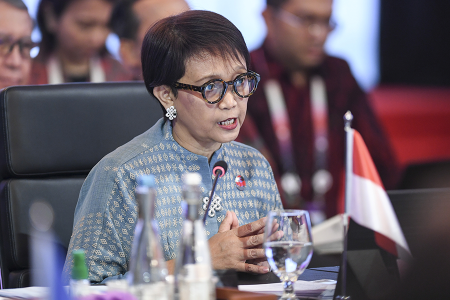"No one can solve this problem alone, but together we can change things for the better."
Discussion of Nuclear-Free Zones Gathers Momentum
July/August 2024
By Shizuka Kuramitsu
Efforts are underway to breathe new life into the campaign to expand and strengthen nuclear-weapon-free zones as nuclear disarmament negotiations remain stalemated.

Kazakhstan and the UN Office for Disarmament Affairs have scheduled a workshop August 27-28 in the Kazakhstan capital of Astana to explore ways to cooperate in advancing these zones.
This will be the first time in five years that states-parties to the five nuclear-weapon-free-zone treaties, international organizations, and various other interested parties are gathering to discuss zone-related issues, including “fostering cooperation and enhancing consultation mechanisms” among the existing zones, according to the organizers’ planning document.
Participants plan to “explore how [the zones] can help respond to the existing and emerging threats that challenge the international community today, including through the full realization of the zones’ provisions and potential for new zones in other regions of the world,” the document stated.
The five existing zones are in Latin America and the Caribbean region, the South Pacific region, Southeast Asia, Africa, and Central Asia. In addition, Mongolia maintains a self-declared nuclear-weapon-free status. Nuclear-weapon-free-zone treaties commit states-parties within the designated zones to refrain from manufacturing, stockpiling, testing, developing, and possessing nuclear weapons.
The zones have played an important role in maintaining the global and regional nuclear nonproliferation regime. Article VII of the 1968 nuclear Nonproliferation Treaty (NPT) affirms the right of NPT states-parties “to conclude regional treaties in order to assure the total absence of nuclear weapons in their respective territories.”
The five states recognized under the NPT as nuclear-weapon states (China, France, Russia, the United Kingdom, and the United States) have been called on to provide legally binding assurances to states in the zones that nuclear weapons will not be used against them. The workshop expects to discuss how to strengthen such security assurances.
“Sadly, the risk of a nuclear weapon being used, deliberately, or by mistake or miscalculation, has risen dramatically,” the planning document said.
“However, many of the challenges facing [the zones] have also not changed since 2019. In today’s fragile geostrategic context, finding ways to fully implement the security benefits due to member states in light of the commitments they have made as parties to [the zones] must be a top priority,” the document said.
The United States remains the only NPT nuclear-armed state that has failed to ratify three existing zone treaty protocols, for the South Pacific (Treaty of Rarotonga), African (Treaty of Pelindaba), and Central Asian treaties. Some members of Congress are discussing ways to remedy that situation.
